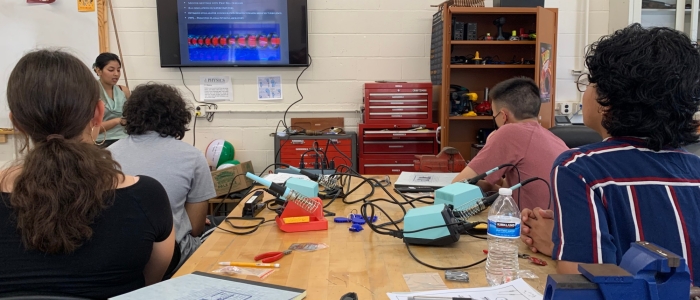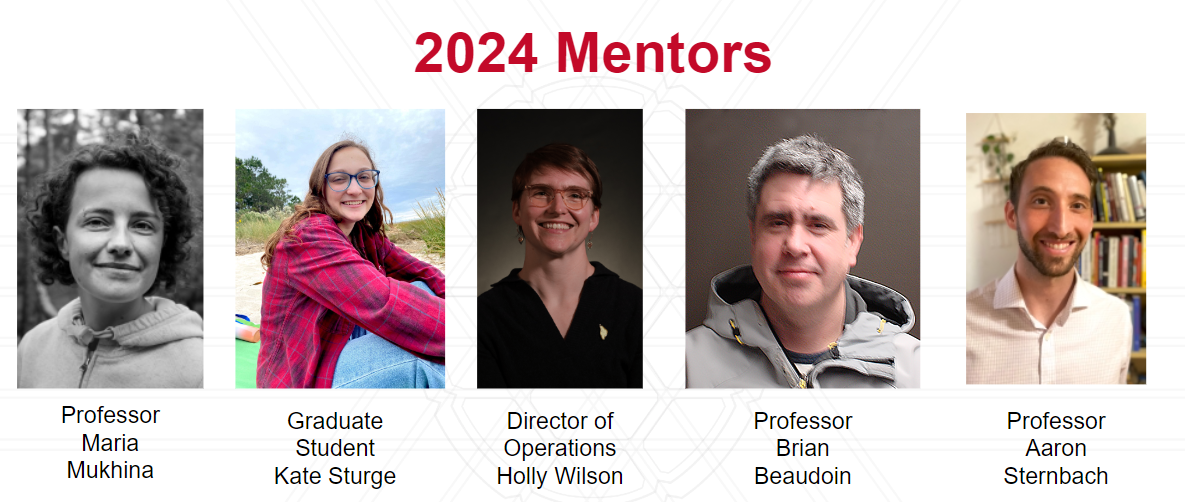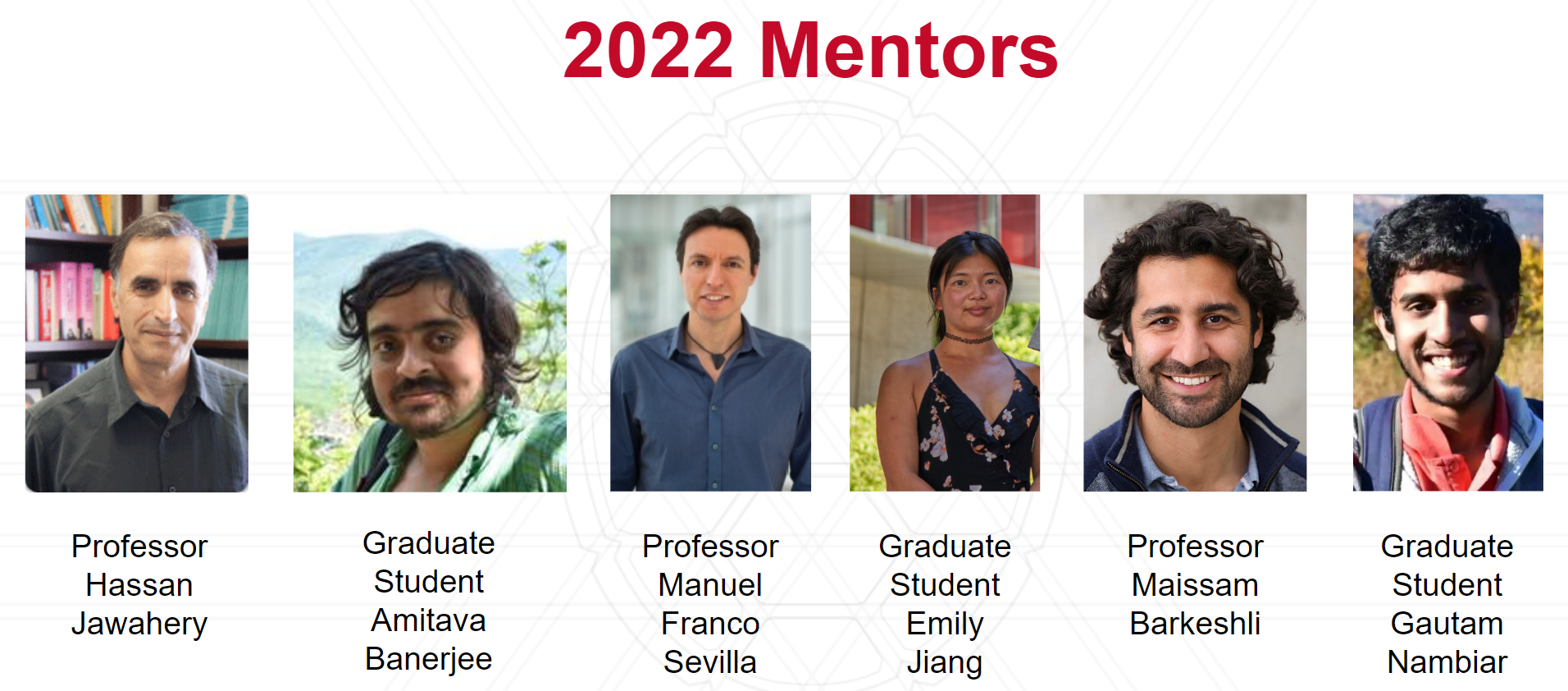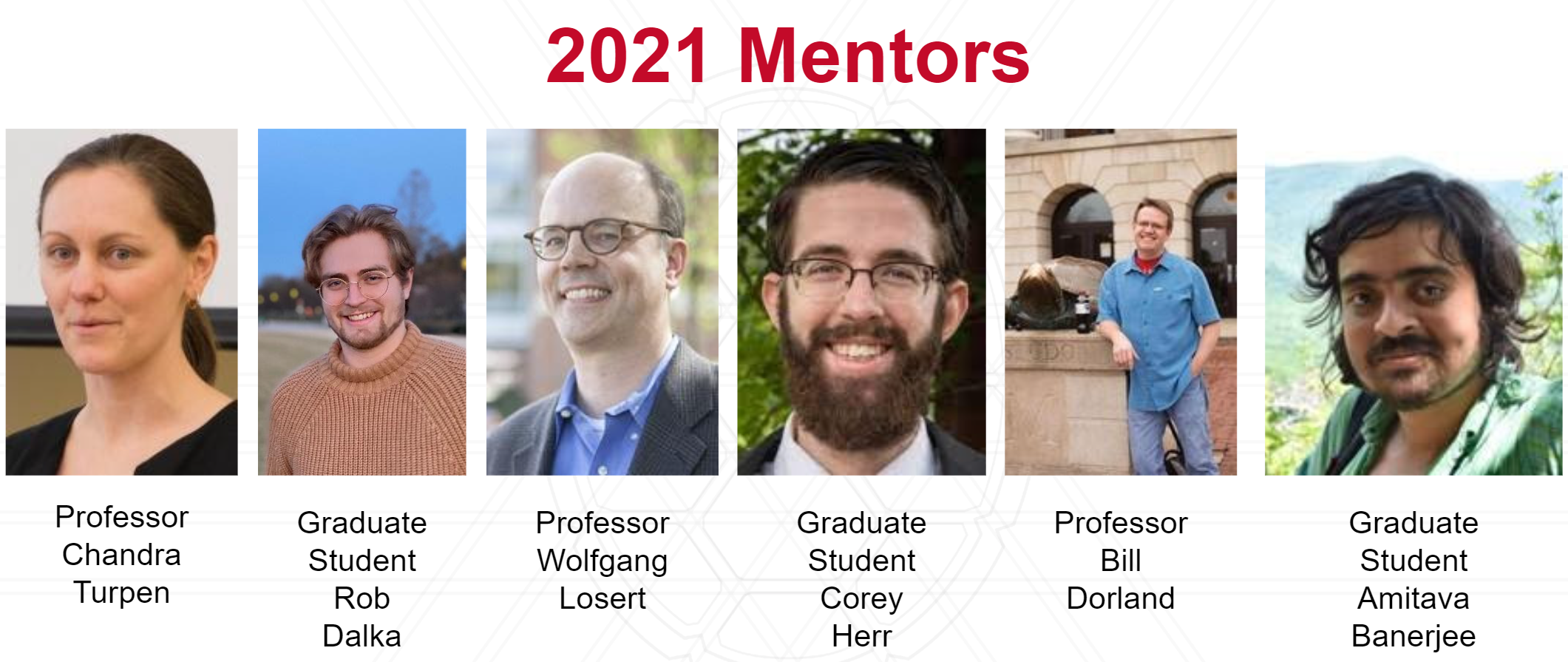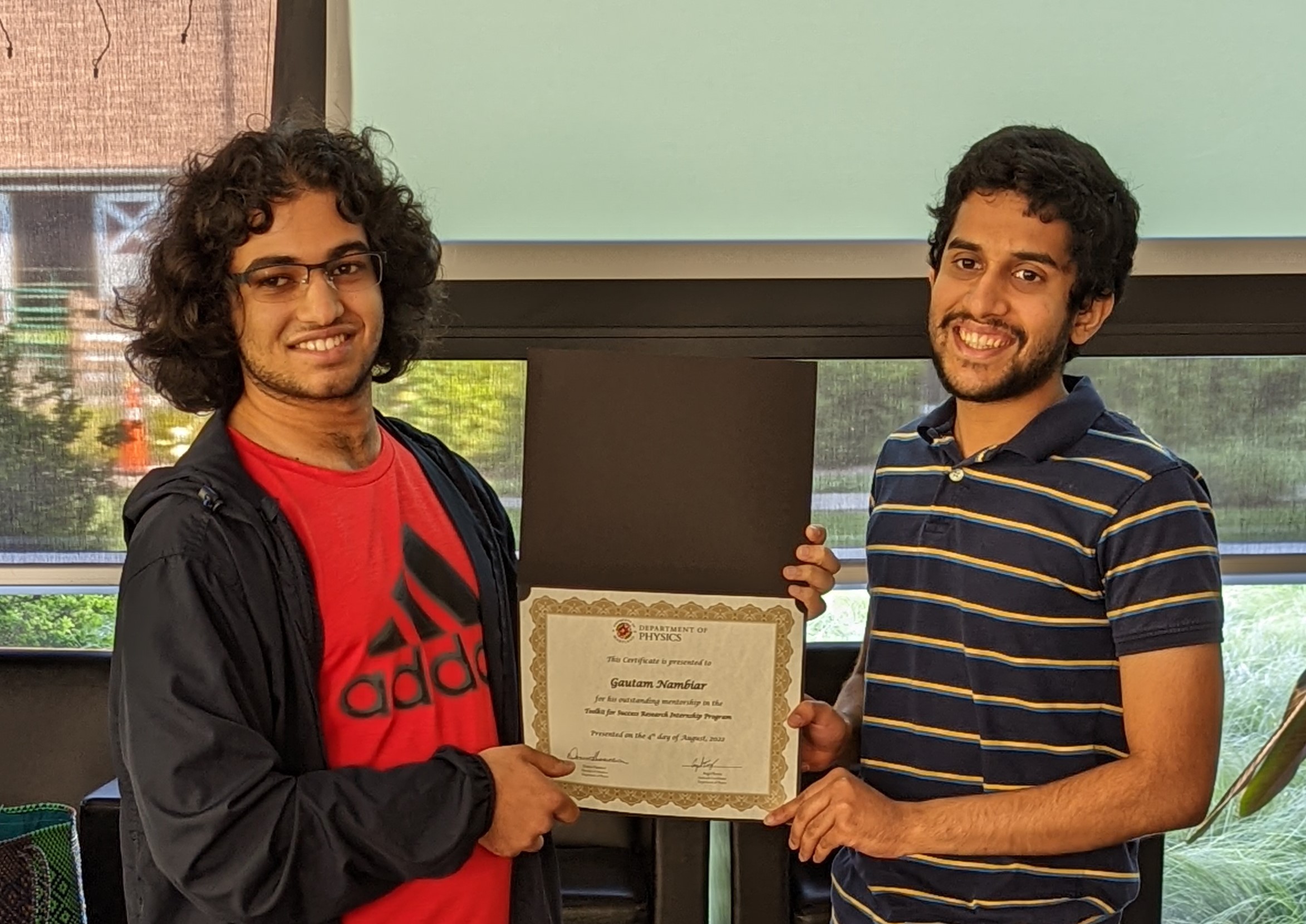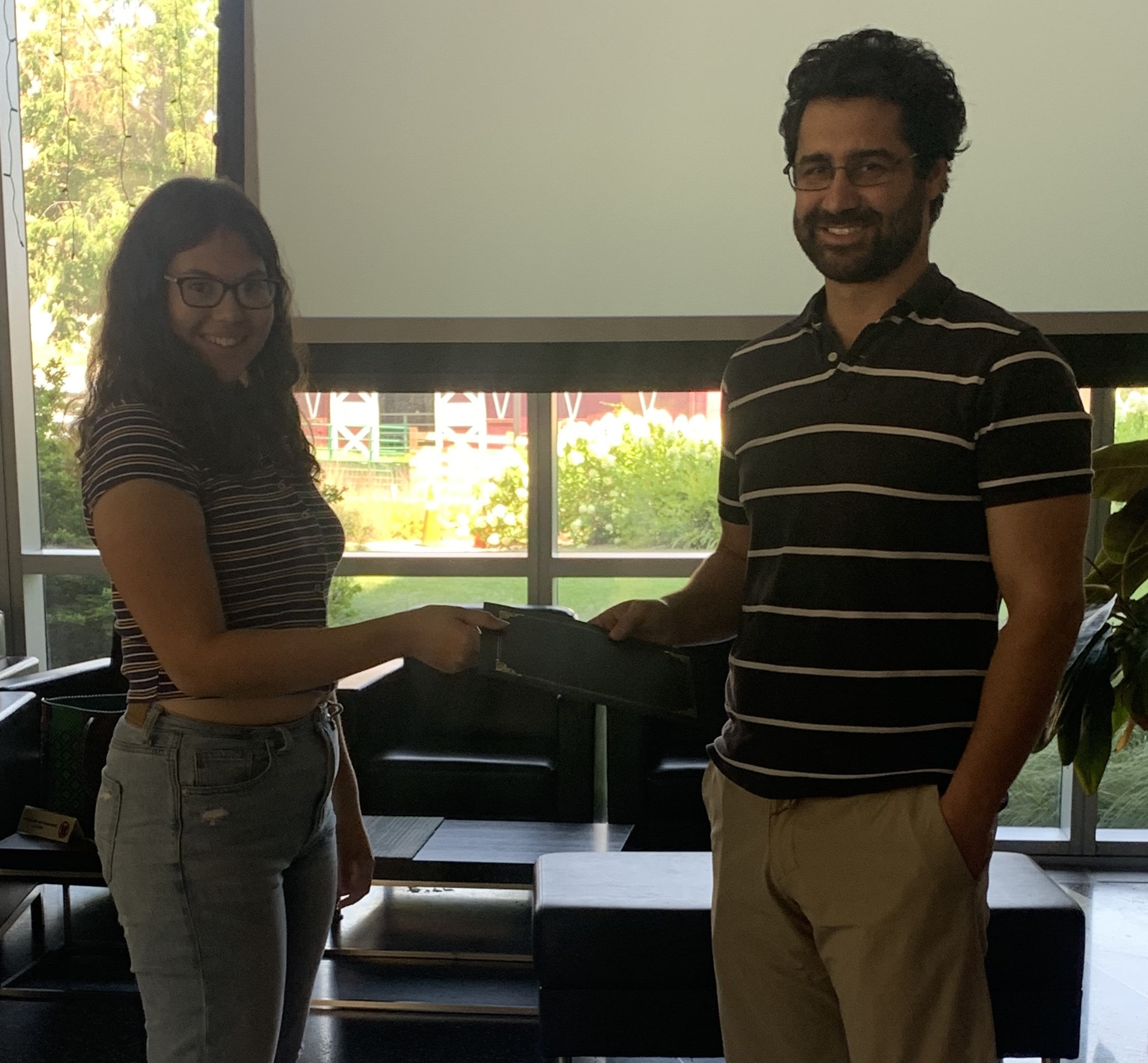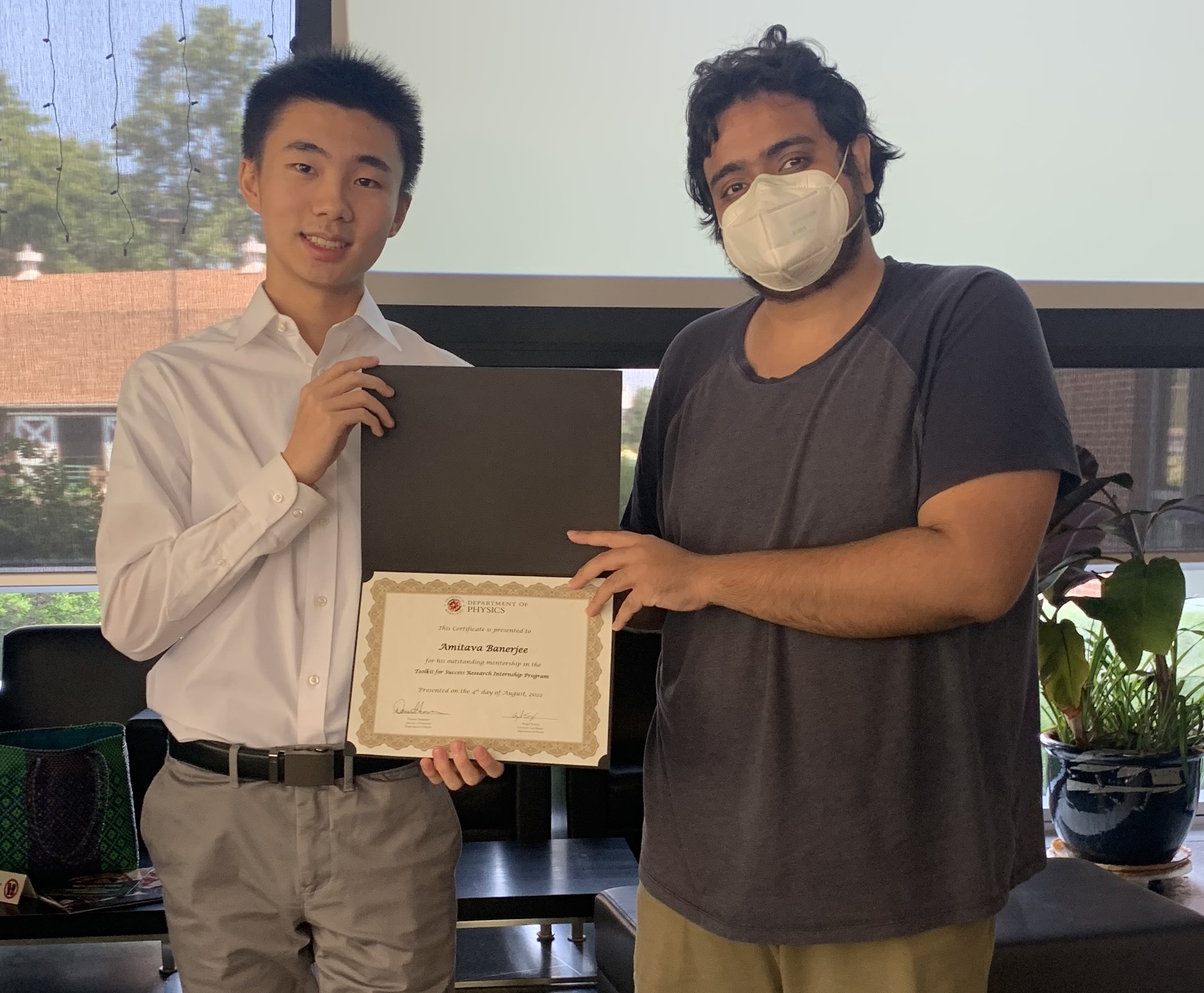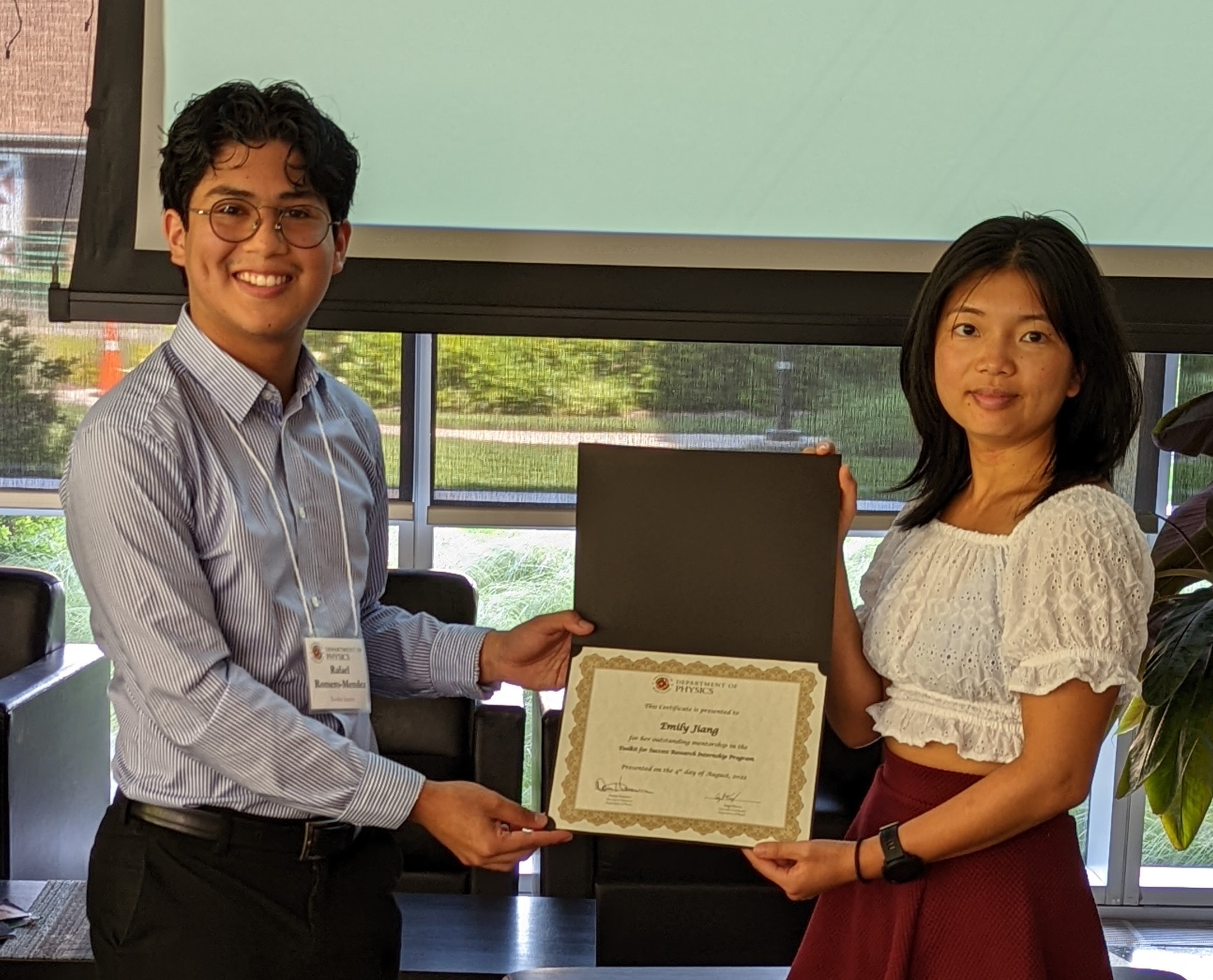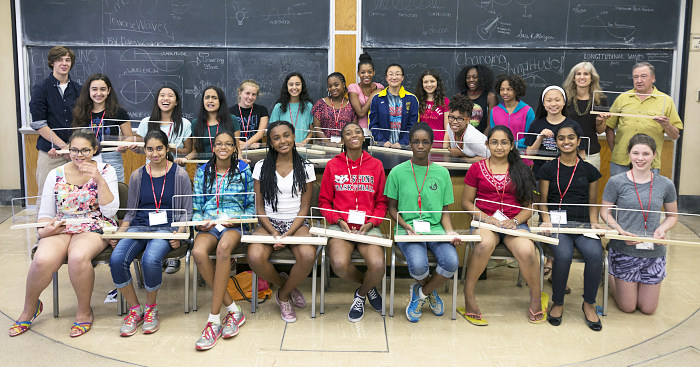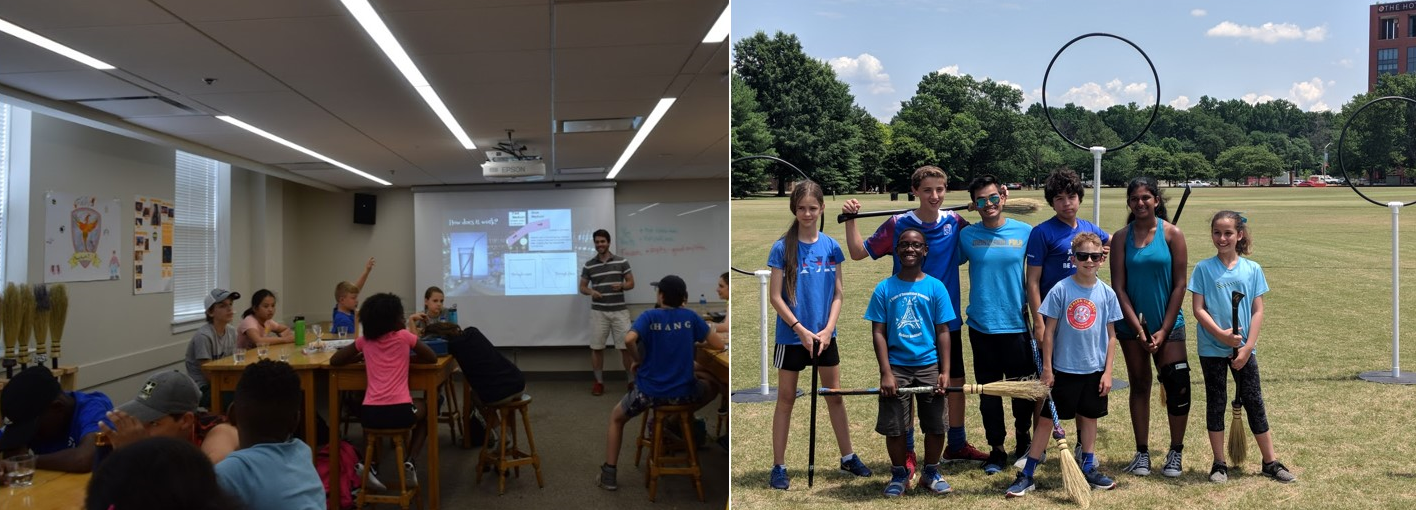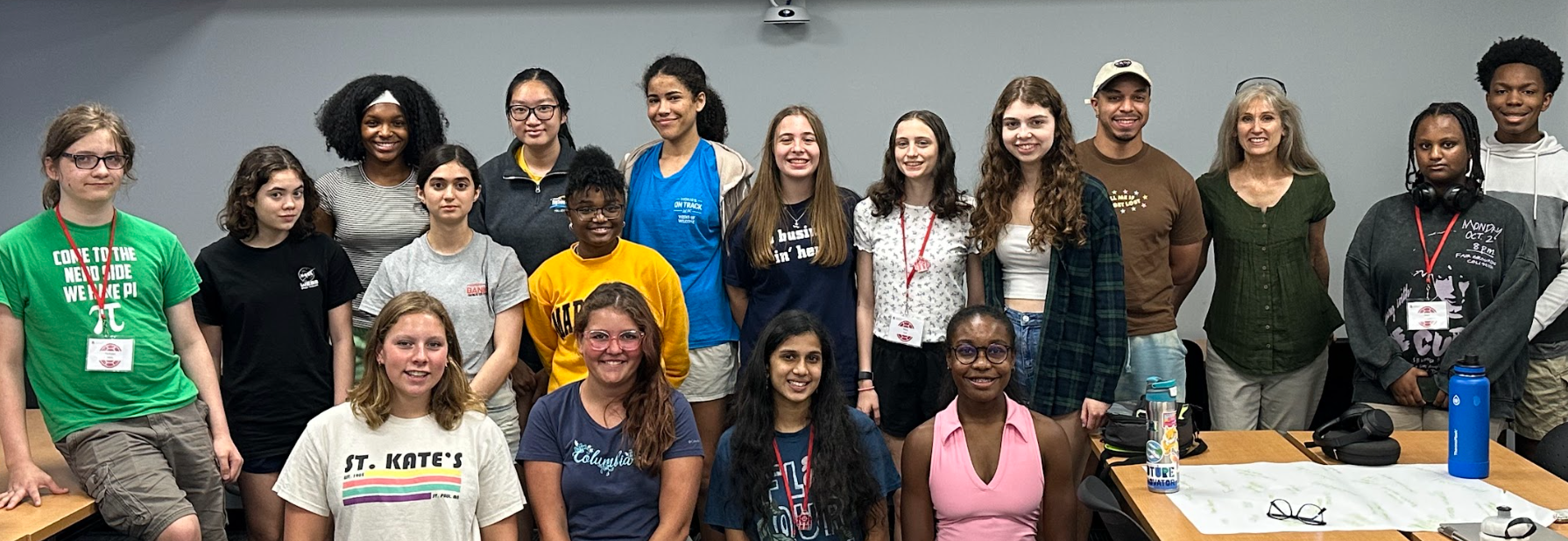2021 Research Projects
Analysis of Organizational Documents by Physics Departments and Their Correlation to the Preparation of Their Students
Shane Amare and Sarah Waldych working with Professor Turpen and Graduate Student Rob Dalka
Physics Education Research (PER) is a broad field of study that employs both quantitative and qualitative methods to build a better understanding of how the teaching and learning of physics happens. As a part of participating in this project, students engage in discussions about PER and learn about the various research questions it asks. This project focuses on providing students with experience in quantitative methods, primarily statistical analyses and possibly network analysis, either using the programming language R or Python. Students are first be guided through the basics of the programming language and practice on open source data. Then, they work with data that has been collected through a survey of Physics Department Chairs to develop findings about that data. This type of analysis and the programming skills will be widely applicable.
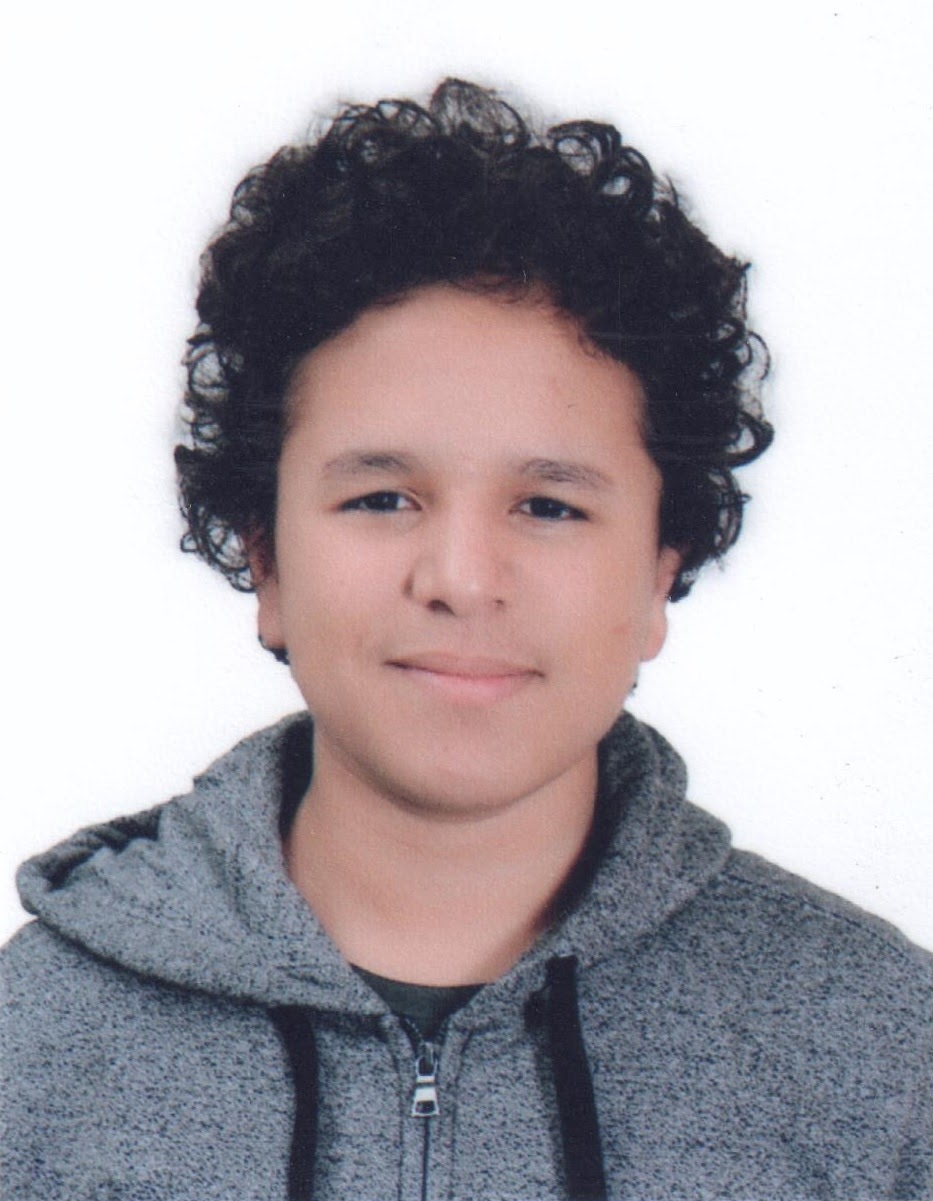
"It's hard for me to say what was more valuable: the research experience I gained, the practical skills I learned, or the amazing insight I received from listening to the top-notch guest speakers." - Shane Amare

"Working with Dr. Chandra Turpen and Mr. Rob Dalka over the summer was an amazing experience as I was able to get my first exposure to working in Python handling large data sets. The Toolkit for Success community was so welcoming as both of my mentors were incredibly kind and patient." - Sarah Waldych
Simultating Stellarator Turbulence
Tannishtha Saha and Wenxi Wu working with Professor Dorland
In the project, a small team of students from around the country work together (virtually) to build a simulation program. The goal is to be able to evaluate proposed thermonuclear "stellarator" configurations (ie, fusion reactors, as recently called for by the National Academy of Sciences)) in the context of the turbulence that will be present in the superheated fuel. The turbulence causes the fuel to cool very rapidly and this project is focused on identifying reactor designs that minimize the effects of the turbulence.

"It was an honor working under the mentorship of Professor Bill Dorland. Through the course of this research project on simulating stellarator turbulence, I gained skills and experiences that I’m sure will prove fruitful in my college tenure." - Tannishtha Saha
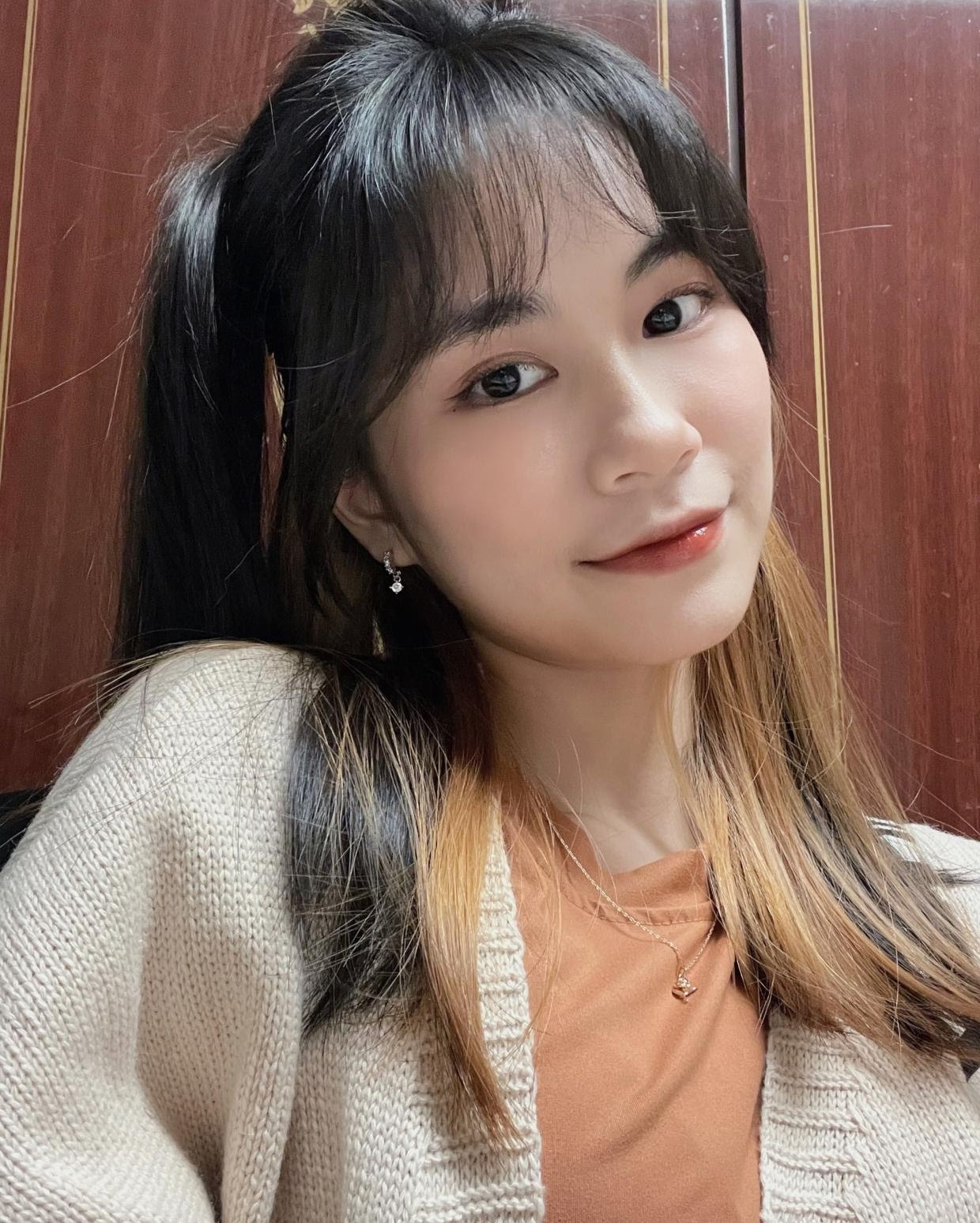
"Toolkit for success is a great program that provides opportunities for hands-on research experience and mentorship with experts in the field. It widened my horizon on plasma physics research and fascinating programming skills." - Wenxi Wu
Analysis of a One-Dimensional Excitable Cell Network Model
Patrick Chen working with Professor Losert and Graduate Student Corey Herr
This project will focus on the electrical, chemical, and mechanical signals associated with single cell and multicellular systems through an intersection of computational physics and biology. Students discover how to model the biochemical signals inside the cell that determine cell motion. Understanding the mechanisms behind cell motion gives insight into anomalous cell migration and allows for more innovation in experimental design.

"Working on actual research with Corey Herr and Professor Wolfgang Losert has provided a valuable insight into what a future career may look like that classes can not match." - Patrick Chen
Analyzing Neural Networks and Predicting Futures of Dynamical Systems
Neil Shah working with Graduate Student Amitava Banerjee
For this project, students use artificial neural networks to map out unknown network structures and interaction patterns between different dynamical variables from their sampled time series data. This involves a very general technique covering a very broad set of interdisciplinary problems. Examples include: data for populations of different species in an ecosystem and finding out how they are dependent on one another, collections of fish swarms and starling murmurations and showing how interactions between individuals lead to these collective behaviors, and data of ocean currents and global temperature profiles, and mapping how global warming affects ocean circulation. Students use machine-learning-based computational techniques developed by our group to analyze experimental, simulated, and/or real-world, multi-variable, time-series datasets to discover network structures and interaction patterns in them.
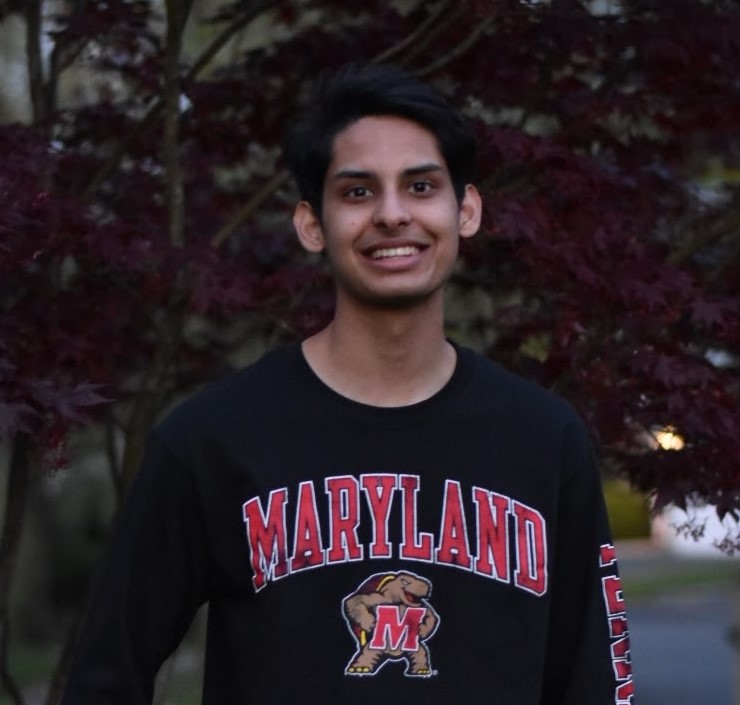
"I came into this research opportunity having little experience with research and using numerical methods to solve problems. However, through my research with my mentor, Amitava Banerjee, I was able to contribute to his research from my knowledge at the time and learn so much more about topics I was previously unfamiliar with. The whole experience was a great way for me to dive into a new area of physics and research." - Neil Shah

